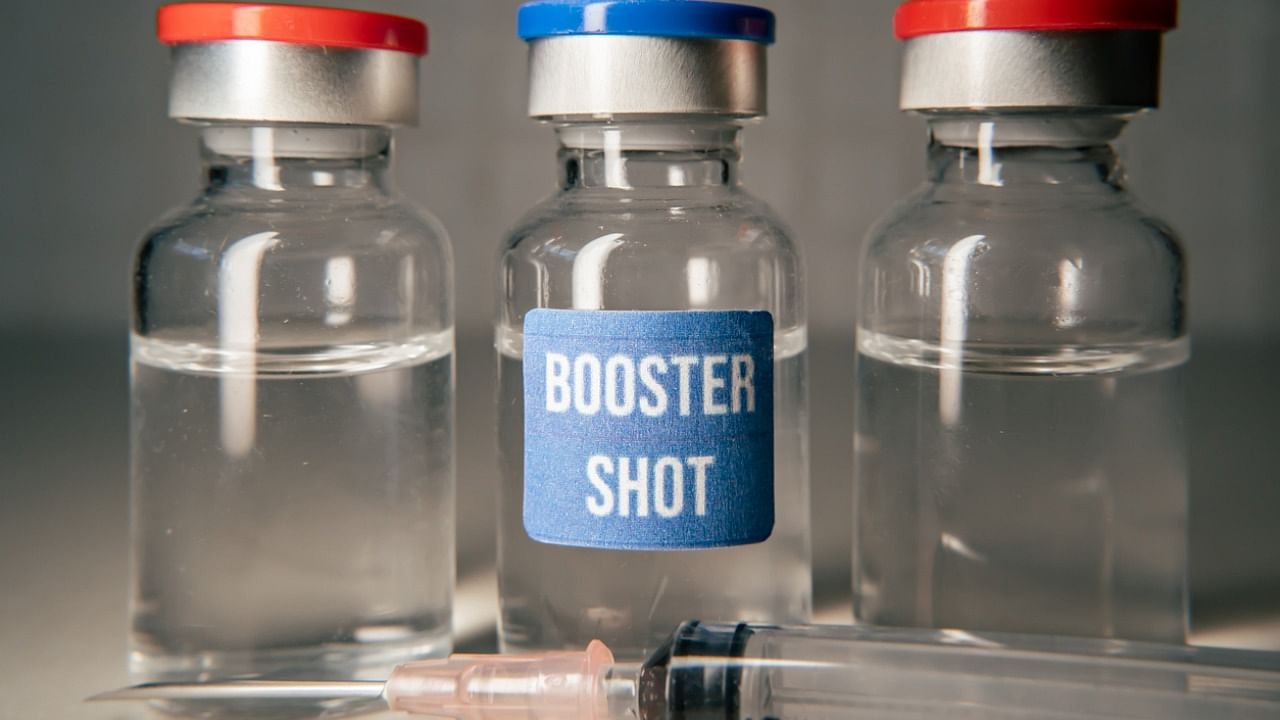
The UK government is preparing to offer millions of vulnerable Britons, who have received two doses of the Covid-19 vaccine, a booster jab from September to ensure that the protection is maintained against new variants of the coronavirus before winter comes, according to media reports here.
The National Health Service (NHS) has been given the green light to start planning a Covid vaccine booster programme, the BBC reported.
Health and Social Care Secretary Sajid Javid said ministers were working with the NHS to rapidly deliver the programme from September.
Read more: Centre may issue e-vouchers to economically weaker sections to get Covid vaccine at private centres
"Our first Covid-19 vaccination programme is restoring freedom in this country, and our booster programme will protect this freedom," he said.
The Department of Health said the plan had been drawn up following advice from the Joint Committee on Vaccination and Immunisation (JCVI) and will take place alongside the annual flu jab rollout, according to the Express newspaper.
Interim advice from the JCVI is that boosters will help maintain protection against Covid-19 and new variants for those most at risk before winter comes.
Vaccines Minister Nadhim Zahawi said, "Our Covid-19 vaccination programme has been a roaring success, with almost 85 per cent of adults across the UK receiving a first dose and more than 62 per cent getting both doses."
"We are now planning ahead to future-proof this progress and protect our most vulnerable from variants and flu ahead of the winter," he said.
More than 30 million of the most vulnerable should receive a third dose, vaccine experts are advising.
They will include all adults aged 50 and over, and anyone younger who qualifies for a flu jab.
Health service bosses had previously said they needed lots of warning of an autumn Covid-19 booster rollout to plan the logistics alongside vaccinating millions of people against flu, the BBC said.
The vaccines are thought to protect most people against serious illness for at least six months, but a lack of data on exactly how long immunity lasts is prompting a safety-first approach, it said.
No decisions have yet been made on which vaccines will be used.
Prof Jonathan Van-Tam, deputy chief medical officer for England, said, "We want to be on the front foot for Covid-19 booster vaccination to keep the probability of loss of vaccine protection, due to waning immunity or variants, as low as possible - especially over the coming autumn and winter."
He said other respiratory viruses, particularly flu, "will make a comeback" and be an additional problem this winter.
"We will need to ensure protection against flu, as well as maintaining protection against Covid-19," Prof Van-Tam said.
The JCVI's final advice will be published before September when better data will be available on how long protection from the first two doses of the vaccines lasts.
The latest figures on hospitalisations, emerging variants and trials will also be taken into account at that point, and could change their advice.
The government said that a final decision on whether a vaccine booster campaign was needed had not been made, but officials had advised that preparations should begin on a precautionary basis.
The JCVI advised the programme should take place in two stages, with the first round focusing on frontline health and social care workers, clinically vulnerable people, care home residents and those who are immunosuppressed.
All adults over 70 will also fall into this category.
Once these batches of people have been offered their booster vaccine, the next stage will concentrate on three categories.
These include all adults over 50, adults under 50 who are in high-risk groups and adults living with immunosuppressed individuals.
Prof Wei Shen Lim, Covid-19 chair for JCVI, said all these groups would also be eligible for the annual flu vaccine and were strongly advised to have it.
Younger adults will be not be given a third dose, because they will only have had their second dose in the summer, although this decision will be revisited at a later time, the JCVI said.
The latest data from the Government shows 44.7 million people have received their first dose and 32.8 million are fully inoculated with two jabs.
The UK on Wednesday recorded a further 26,068 cases of Covid-19, the highest daily figure since January 29.
The total number of coronavirus cases in the country now stands at 4,800,907 with 128,140 deaths.